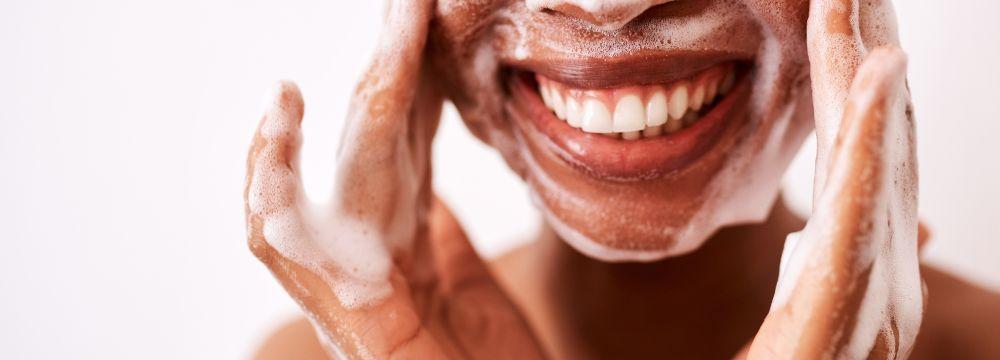Does Panoxyl Acne Wash Work? (& Three Good Alternatives)

When it comes to acne, products that contain benzoyl peroxide, such as Panoxyl, can work well. So well, in fact, that this treatment is often the very first in the toolkit for combating acne. This is because benzoyl peroxide is an anti-septic (reduces bacterial growth) while also drying the skin to allow for turnover, exposing fresher skin.
So, the short answer is a resounding YES – Panoxyl does work. The caveat is that this medication has its limitations. When benzoyl peroxide cannot clear more stubborn or severe acne, an alternative approach needs to be considered.
So, what makes medicine like Panoxyl so effective? You might be surprised to learn exactly how benzoyl peroxide packs its punch and what the research shows when it treats acne.
Benzoyl peroxide works by targeting the bacteria that are produced in and around acne lesions. Studies have shown it reduces the amount of some strains of bacteria by 98%, and importantly, it does not lead to treatment resistance. It is as effective now as it was decades ago. Depending on each patient’s unique needs, it is available in different strengths and formulations.
Benzoyl peroxide has one more surprising trick up its sleeve – it is a keratolytic or a product that helps dissolve keratin in the uppermost layers of the skin. This helps the product penetrate deeper and removes dead skin cells contributing to blocked pores, which can lead to the development of comedones and, ultimately, acne.
Panoxyl is just one brand of benzoyl peroxide-containing medicine, but it is one of the most well-known because it comes in several different formulations. There are foaming washes, cremes, masks, and lotions available over the counter. It can be used daily; side effects, besides some dryness or skin flaking, are usually minimal. However, occasionally, people with sensitive skin might develop dermatitis. Benzoyl peroxide causes bleaching, so care should be taken not to get it on bedding or clothing. It can also cause sun sensitivity, so daily sunscreen when using this medication is a must.
Research has shown that benzoyl peroxide combined with other topical medications for acne is more effective than if applied alone. So, talk to your doctor about a complete skincare regimen.
When Topicals Fail
When topical medications have been tried and failed, don’t give up hope – there are other options. Acne can be stubborn, and sometimes, it won’t go away with simple topical remedies. Many alternatives exist, but let’s focus on a few promising options.
Natural remedies and lifestyle changes: Don’t underestimate the power of diet on acne. Several triggers have been identified, and some foods can promote or prevent acne. The low-glycemic diet is one of the best acne diets, with research backing it up. This diet has been shown to reduce acne across multiple studies conducted in many countries. It has high-quality evidence behind it, with reproducible results that apply to many. Low-glycemic diets mainly consist of fruits, veggies, beans, and lean proteins that do not spike blood sugar.
Cow’s milk has some evidence that links it to acne. Although it is unclear what in milk can trigger acne, it is thought that their diets, including additives, may be partly to blame.
Stress and anxiety management is another significant lifestyle change that can help reduce acne. Stress triggers inflammation in the body, which can contribute to acne. This means that lowering their overall stress levels can reduce their acne for some people. And goes for anxiety. These are often causative of each other and can co-occur.
When topical medicine and natural remedies still don’t clear acne, talk to your dermatologist about more in-depth options. This could be a stronger medication, like a retinoid, or a different type of intervention altogether.
Many lasers have been used to treat acne and several show promising results. Nd-Yag laser has been shown to treat active acne breakouts, and photodynamic therapy, or PDT, is another promising option. Newer lasers can even target oil. There is not one laser that alone has been shown to completely clear acne. Instead, they are often best used in combination with other treatments. However, according to the American Academy of Dermatology, light and laser-based therapies have effectively improved more severe forms of cystic acne. So, while lasers are not a slam dunk for acne, exciting progress is being made.
Dr. Boger’s aesthetic skin care practice is dedicated to bringing our patients the newest and best technology. We have an exciting array of laser-based treatment options that can help. Our aesthetician, Anna, also assists with effective, nonmedical options, including comprehensive skin care improvement and maintenance programs.